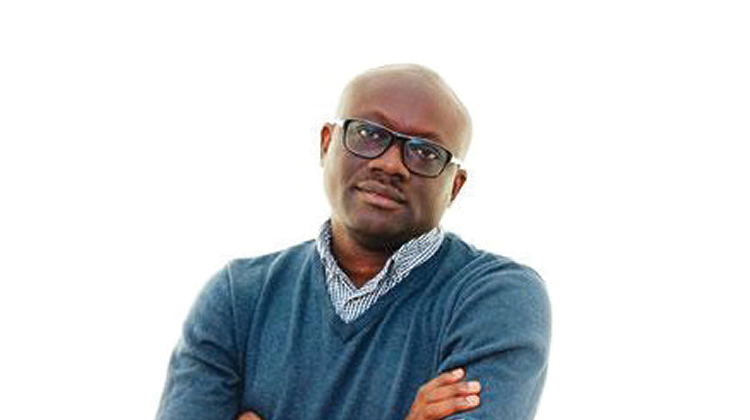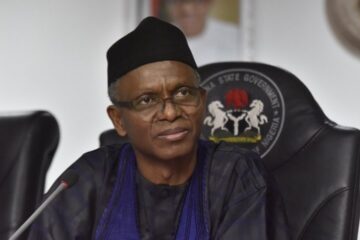[OPINION] ‘Them belly full (but we hungry)’

Simon Kolawole
President Bola Ahmed Tinubu has been receiving accolades for his initial, somewhat radical policy steps since he was inaugurated on May 29. Many economists, foreign media and, surprisingly, some Nigerian opposition figures are impressed with his speed in announcing the end of petrol subsidy, which he followed up by moving to eliminate the multiple exchange rates. The World Bank and the International Monetary Fund (IMF) are obviously incredulous that a Nigerian leader could do these two things in quick succession. The consensus seems to be that Tinubu is in the right direction and if he sustains the reforms, the Nigerian economy should be on sound footing in a couple of years.
On the other hand, the average Nigerian is not finding it funny. You can say whatever you like about the imperative of deregulating petrol pricing so that the downstream sector can attract investments and create jobs — while the budget for subsidy “to protect the poor” (about N4.5 trillion in 2022 alone) should be spent on areas that will be more beneficial to Nigerians. Very good point. But the biting reality is that petrol price has moved from under N200/litre to over N500. Transportation costs have gone up. Prices of goods and services are up. That is what Nigerians can feel instantly. The economic theories are good for classrooms only — until the people can see and feel the benefits.
You can argue convincingly that the multiple exchange rates regime was hurting the economy, sending discouraging signals to investors as well as creating corruption and insane arbitrage with the “official” and “black market” rates. You can argue that the “rotten system” discouraged the inflow of forex. Why would anyone bring $1 billion to invest in Nigeria and be forced to get the naira equivalent at the “official” N430/$ rate when the same sum was going for N750/$ on the streets? If you were sent a Western Union transfer, would you exchange for N430/$ or N750/$? Unification is a rational argument. But to Nigerians whose cost of living has gone up, that is no music to their ears.
As if things are not bad enough, electricity tariffs are set to go up again. Of course, you can make a compelling and logical case that the privatisation of the power sector means tariffs have to be commercially viable. Otherwise, the power companies would go bankrupt. Sound reasoning. After all, the multi-year tariff order (MYTO) allows for tariffs to be reviewed regularly to reflect inflation and exchange rate changes (remember gas prices and spare parts are also dependent on FX). We have often delayed or suspended MYTO “to protect the poor”. Between 2015 and 2020, we spent trillions of naira on the Nigeria Electricity Market Stabilisation Facility (NEMSF) “to protect the poor”.
But when you put the effects of Tinubu’s reforms together, what you get is harsher economic climate for the majority of Nigerians. Those that will be disproportionately affected are the low-income earners who are already struggling with high cost of living and low standard of living. Inflation — whether or not it is one-off — is an enemy of the poor whose disposable incomes are miserable. Even members of the middle class will also be impacted, although they may have overcome the Maslowian physiological needs: food, shelter and clothing. Still, they have to deal with higher payments for foreign education and medical treatment because of the unification of the FX rates.
Nevertheless, if we take a dispassionate look at the Nigerian situation, the conclusion would be that we have been living a lie for too long under the guise of “protecting the poor”. It is inevitable that the economy would come to this sorry pass with debts mounting, inflation unforgiving, and public finance in total mess. The economy is on its knees. For too long, we deceived ourselves that we were an oil-rich country. We lied to ourselves that we were a special breed of homo sapiens who should be treated differently from the rest of the world. Alas, the poor people we are “protecting” remain poor while those “protecting” them are busy flying private jets and acquiring mansions in Dubai.
Let us discuss energy prices, for a start. Nigerians who live abroad know for a fact that energy is not a cheap thing. Electricity, gas, petrol and other fuels are sold at commercial rates — in addition to energy taxes. That is their reality. When oil and gas prices go up or down, tariffs are adjusted accordingly. Our counter argument in Nigeria is that “but their government is doing something for them”, which is true, very true, but we have to ask ourselves what we want in Nigeria. Should the government go on pumping trillions into petrol subsidy yearly to keep energy prices low or spend the money on education and healthcare so that we too can say our Nigeria is doing “something” for us?
Nigerians who travel to neighbouring countries know that petrol is not sold for N200/litre. So, if our argument is that we want “to protect the poor”, are Ghanaians, Togolose, Ivoriens and Cameroonians poorer than Nigerians? Why were they paying the economic rates for energy and we were not? We also say because we are an oil-rich country, we should enjoy low prices. To be honest, I used to make this argument myself. But the reality today is that we are not oil-rich. A country that was producing 2.3m barrels per day in the 1970s when its population was 60 million is now producing 1.4mbpd with a population of 200 million. And our share of oil production is so pitiable — less than 400,000 bpd!
The sad truth is that our false confidence as an oil-rich country has ruined us for decades and we have refused to make the necessary adjustments. When oil prices nosedive, we continue to spend money and take debts hoping that the market would soon bounce back. We continue expanding government expenditure, creating agencies every week, building ultra-modern governor’s lodges, acquiring the best bullet-proof vehicles in the world for government officials, paying fraudulent commissions on dubious deals and all whatnot. The central bank kept printing money to fund public budgets. We kept digging holes in public finance. Well done, guys: we now owe over N77 trillion.
We are in a black hole. Something has to give. Can we continue to pretend we are oil-rich when we had to use our share of oil and even borrow barrels from the future to import petrol? Under the crude swap regime which we have now decided to ditch, we would exchange $1 billion worth of crude for $1 billion worth of imported petrol and sell for roughly $400 million “to protect the poor”. That was a hit of $600 million at a time we badly needed all the money. But some people even argue that there was no subsidy since it was trade by barter. I wouldn’t blame them. The Nigerian situation is so convoluted it is difficult to make sense of anything. Our economics is close to witchcraft.
Nigerians also feel entitled to cheap dollar. It is very common to hear people reminisce about the “good old days” when it was N1/$ and a return ticket to the UK was N250. In truth, there was a time it was 80 kobo to $1. We were having a ball. It was cheaper to import a bottle of water than to make it at home. Our problem was not money but how to waste it. This mentality comes with oil booms which result in an influx of petrodollars. It is called the Dutch Disease, coined from the experience of the Dutch who hit oil boom in the 1970s and started drowning in dollars. It killed their local industry. Oil windfalls make the local currency look strong until the wind stops falling and stark reality dawns.
Adjustment has been begging to happen to us since oil prices started falling in the late 1970s. But because oil prices kept rebounding, we got locked into the vicious cycle of boom and bust. We kept spending big and piling up debts when we were broke, believing that the next oil boom was just around the corner. The boom would come and go but our mentality never changed. Our budgets are eternally benchmarked against oil prices. It is bondage. Like the biblical Samson whose supernatural powers waned after Delilah’s betrayal, we have been unable to rise again since the oil power left us in 2014. It has been a sad story of low export and low revenue for us. Yet, we keep behaving rich.
Let me now make my arguments. One, while Tinubu’s steps so far may make economic sense in terms of taking the necessary adjustments to get Nigeria out of this sorry state of being, he has to address the reality that the burden will be borne disproportionately by the poor who spend most of their incomes on food and transportation. There must be real and accessible social safety nets to cushion the impact of these harsh economic realities. Nigerians are used to “audio” safety nets and do not trust the government. The president and the governors must address the trust deficit concretely, sincerely and transparently. Nigerians need to know they are not suffering for nothing.
Two, while I have nothing against the message of “let us sacrifice now for a greater tomorrow”, I regret to say it is very painful that our leaders are not doing anything to show us that the sacrifice message applies to everybody. The congregation of government cars that came to welcome Tinubu to Lagos on Tuesday was obscene. His media team tried to put a spin by saying that the cars were not in his convoy but those of the government agencies that came to receive him. Nonsense. Who is paying the N500/litre petrol for those cars? Is that the best way to spend public funds in these dire times? The best way to propagate sacrifice is for our public officers to practise what they preach.
I now conclude. I agree that adjustments come with pains. I agree that you can’t make an omelette without breaking eggs. I agree that economic hardship is not limited to Nigeria — many developed countries are also battling the cost of living crisis. I agree that we must stop underpaying for energy since we cannot afford the subsidies. However, I also insist that the poor must not bear these pains alone. Government officials must sacrifice as well so that Nigerians can be comforted that it is not a case of “them belly full but we hungry” — in the words of Bob Marley, the reggae legend. I have not seen anything in Abuja and the states yet to suggest that this message of sacrifice is for everybody.
Culled from TheCable











